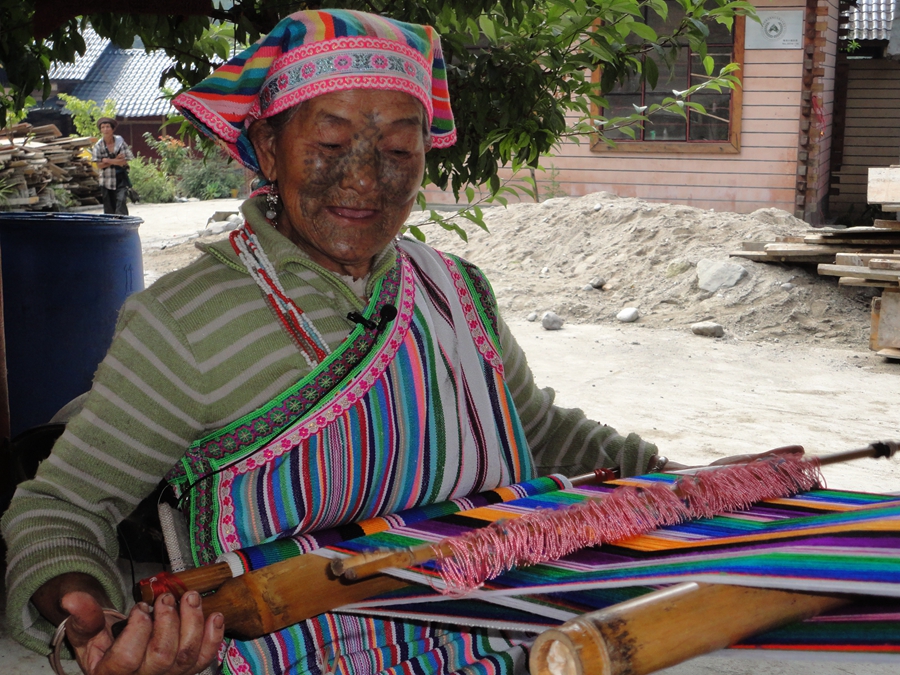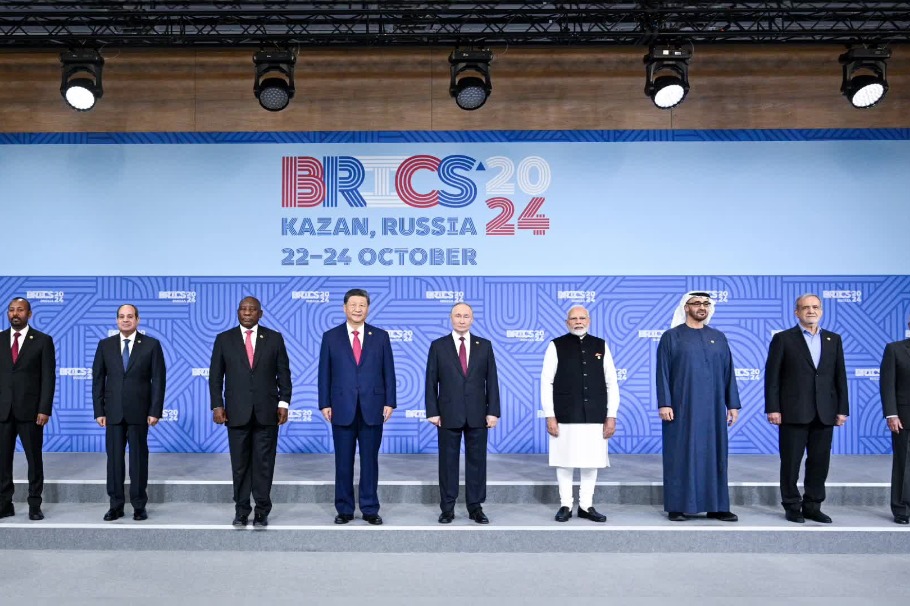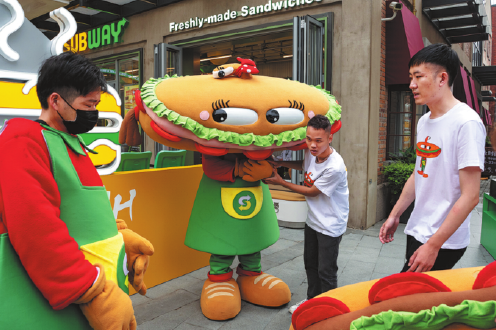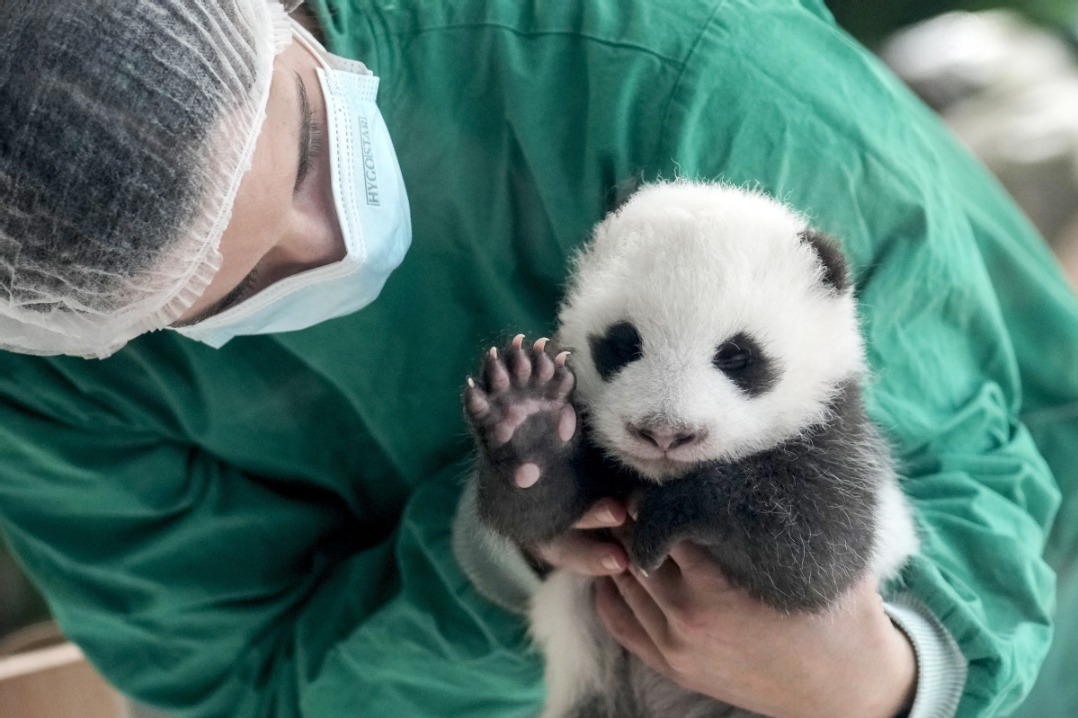Far-flung face of poverty fight





Small, remote ethnic group becomes model of country's comprehensive, wide-reaching resolve to improve lives

Li Wenshi pulls the bar of the loom, her hands moving deftly over the smooth stretch of fabric.
Slowly but surely, the singular strands of twine come together to form a dazzling tapestry of rainbow-like colors under her watch.
The weaver, in her late 70s, looks over her work and smiles, her joy and contentment shining through the tattoos on her face.
Li is a member of the country's Derung ethnic group, which mainly resides amid remote mountain valleys carved out in part by their namesake Dulong River of Southwest China's Yunnan province.
Since major anti-poverty measures were rolled out a decade ago in Dulongjiang township, Li has been living a life of increasing ease and comfort as a resident of its Xiongdang community in Dizhengdang village.
She is one of the few elderly Derung women in the area who still have the face tattoos that were etched in her early teens, in line with the ethnic group's customs, to help ward off any outsiders trying to take its women away. Like the impoverished lives the villagers led, that traditional practice no longer exists for the group. And like the blankets, clothes and carpets Li weaves for leisure and spare cash, the future of Derung villagers seems to be getting brighter and better by the day.



















